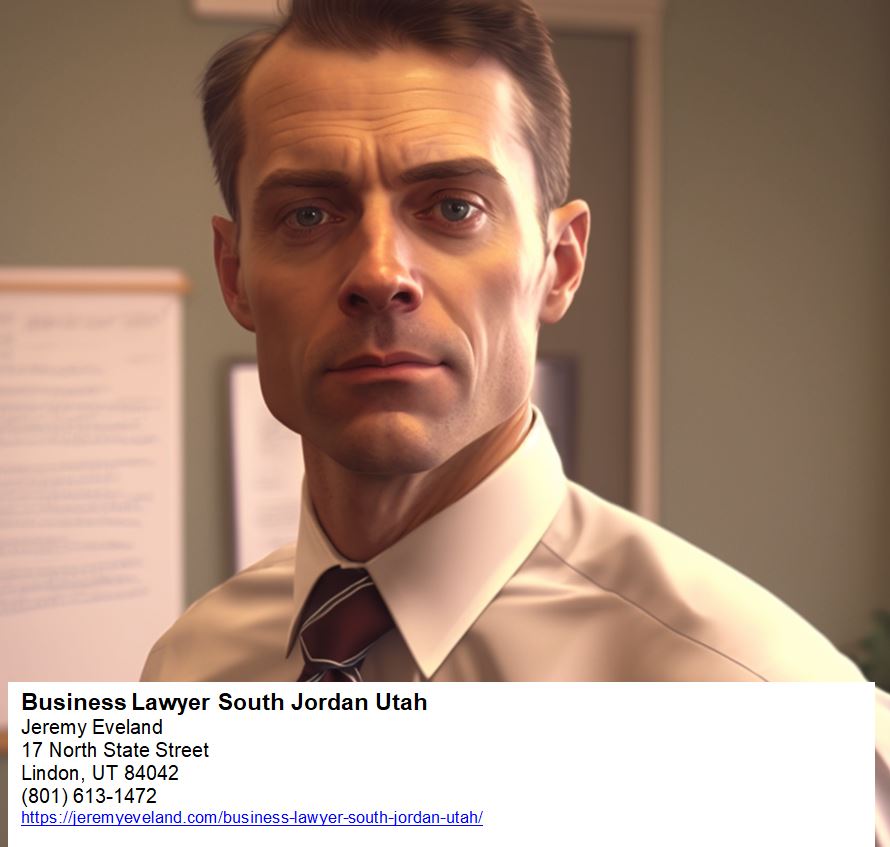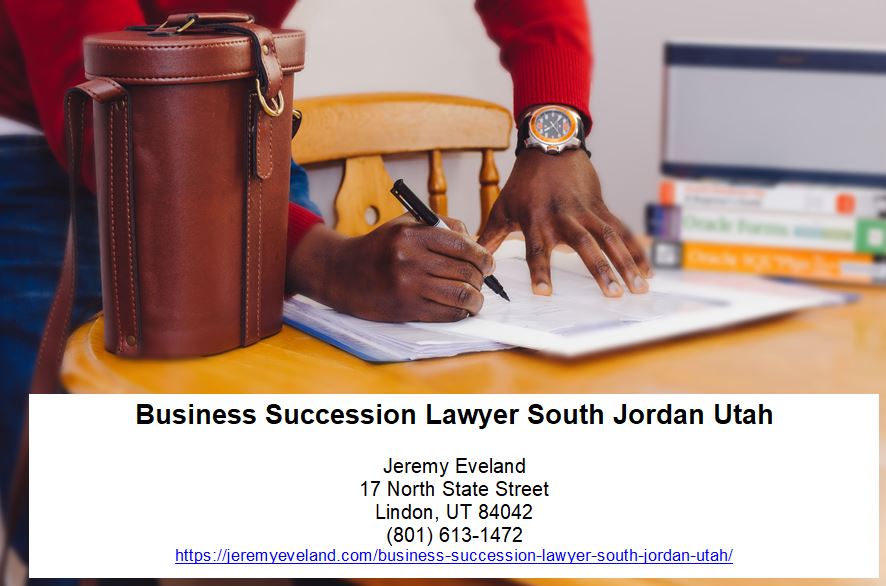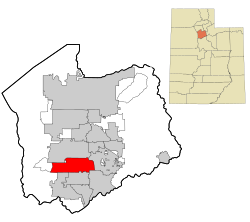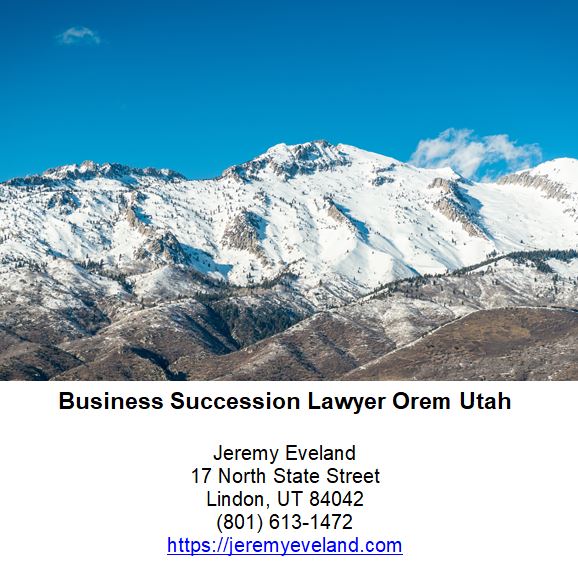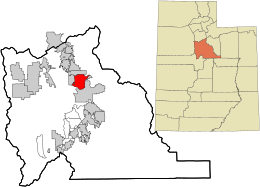Are you a business owner in Summit Park, Utah, in need of legal guidance and representation? Look no further than our experienced and knowledgeable business lawyer. With a deep understanding of business law in the state of Utah, we are dedicated to helping our clients navigate the complexities of legal matters with confidence and ease. Whether you need assistance with contracts, incorporation, compliance, or any other aspect of business law, our team is here to provide you with comprehensive and effective solutions. By reading this article, you will gain valuable insights into the importance of having a skilled business lawyer by your side, ultimately leading you to consider hiring our services to protect and enhance your business in Summit Park, Utah.

Why You Need a Business Lawyer
In today’s complex and ever-changing business landscape, having a knowledgeable and experienced business lawyer by your side is essential. Regardless of the size or nature of your business, the guidance of a lawyer who specializes in business law can help you navigate the legal intricacies and protect your interests. From forming business entities to handling employment law compliance and resolving disputes, a business lawyer can provide invaluable assistance at every stage of your business journey. This article will delve into the importance of a business lawyer, the benefits of hiring one, how to choose the right lawyer for your needs, the services offered by a business lawyer, and much more.
Understanding the Importance of a Business Lawyer
A business lawyer plays a crucial role in safeguarding your business’s legal interests. They not only possess a deep understanding of complex legal regulations but also have the expertise to handle various legal issues that may arise during the course of your business operations. By having a business lawyer on your team, you can ensure compliance with applicable laws and regulations, mitigate legal risks, and protect your business’s reputation. Whether you are just starting your business or looking to expand, a business lawyer can provide the guidance and support you need to make informed decisions and achieve your business goals.
Benefits of Hiring a Business Lawyer
Hiring a business lawyer offers numerous advantages that can greatly benefit your business. First and foremost, a business lawyer can assist in the formation of business entities. They can guide you through the process of selecting the most suitable entity structure, such as a sole proprietorship, partnership, limited liability company (LLC), or corporation, taking into consideration factors like taxation, liability protection, management flexibility, and more.
Additionally, a business lawyer can help you in drafting and reviewing contracts and agreements. From negotiating favorable terms to ensuring compliance with legal requirements, having a skilled lawyer on your side can protect your business’s interests and minimize the risk of disputes arising in the future. Intellectual property protection is another crucial area where a business lawyer can provide invaluable assistance. They can help you register trademarks, copyrights, and patents, and enforce your rights if they are infringed upon by others.
Furthermore, a business lawyer can ensure that your business complies with employment laws and regulations. From creating employment contracts, policies, and procedures to handling issues related to discrimination, harassment, and wrongful termination, a business lawyer can help you navigate the complex landscape of employment law and keep your business in compliance.
Lastly, in the unfortunate event of a dispute or legal issue, a business lawyer can provide effective representation and guide you through the process of dispute resolution. Whether it’s negotiating a settlement, representing you in mediation or arbitration, or litigating a case in court, a skilled business lawyer can protect your interests and work towards a favorable resolution.
Choosing the Right Business Lawyer
When it comes to selecting a business lawyer for your specific needs, it’s important to consider several factors to ensure you make the right choice. Here are some crucial factors to consider when choosing a business lawyer:
Experience and Expertise
Look for a lawyer who has substantial experience and expertise in the area of business law. Consider their track record and whether they have successfully handled cases or matters similar to yours. A lawyer with specialized knowledge and experience can provide you with the necessary guidance and support to effectively navigate the legal landscape and protect your business’s interests.
Reputation and Track Record
Research the reputation and track record of the business lawyer you are considering. Look for testimonials, reviews, and references from past clients or colleagues to gauge their professional reputation. Additionally, consider whether the lawyer has ever faced any disciplinary actions or complaints. A lawyer with a solid reputation and a history of excellence is more likely to provide you with high-quality legal services.

Services Offered by a Business Lawyer
A business lawyer offers a wide range of services to assist you with various aspects of your business operations. Here are some key services typically provided by a business lawyer:
Formation of Business Entities
When starting a new business, a business lawyer can assist you in choosing the most suitable entity structure and guide you through the process of entity formation. They will ensure that all necessary legal requirements are met, such as filing the appropriate documents with the state, obtaining necessary licenses and permits, and complying with taxation laws.
Contracts and Agreements
A business lawyer will help you draft, review, and negotiate contracts and agreements to protect your business’s interests. They can provide legal advice and guidance in matters such as vendor agreements, client contracts, partnership agreements, lease agreements, and more. By ensuring that your contracts are legally sound and enforceable, a business lawyer can minimize the risk of disputes and protect your business from potential liability.
Intellectual Property Protection
Protecting your intellectual property, such as trademarks, copyrights, and patents, is vital for the success of your business. A business lawyer can assist you in registering your intellectual property, conducting trademark searches, drafting licensing agreements, and enforcing your rights against infringement. They can also help you develop strategies to safeguard your trade secrets and confidential information.
Employment Law Compliance
Navigating the complex landscape of employment law is essential to ensure compliance and protect your business from legal issues. A business lawyer can help you develop employment contracts, policies, and procedures that meet legal requirements and promote a fair and inclusive work environment. They can also assist you in handling employment-related disputes, such as discrimination claims, wage and hour issues, or wrongful termination cases.
Dispute Resolution
In the unfortunate event of a business dispute or legal issue, a business lawyer can provide effective representation and guide you through the process of dispute resolution. Whether it’s through negotiation, mediation, arbitration, or litigation, a skilled business lawyer can advocate for your interests and work towards a favorable resolution. By having a lawyer on your side, you can minimize the impact of disputes on your business and protect your reputation.
Steps to Take Before Hiring a Business Lawyer
Before hiring a business lawyer, it’s important to take certain steps to ensure that you find the right fit for your needs. Here are some steps to consider:
Assessing Your Needs
Firstly, assess your specific needs and priorities. Determine the areas of business law where you require assistance, such as entity formation, contract drafting, employment law compliance, or dispute resolution. Understanding your needs will help you find a business lawyer who specializes in the relevant areas and can provide the expertise you require.
Researching Potential Lawyers
Research and gather information about potential business lawyers. Look for lawyers who have experience and expertise in the areas of business law that are relevant to your needs. Consider their qualifications, track record, reputation, and any reviews or testimonials from past clients. By conducting thorough research, you can narrow down your options and make a more informed decision.
Initial Consultations
Schedule initial consultations with the business lawyers you are considering. During these consultations, discuss your specific needs and assess whether the lawyer is a good fit for your business. Pay attention to their communication style, availability, and willingness to listen and understand your concerns. Additionally, inquire about their fees and billing structure to ensure that it aligns with your budget and expectations.
Understanding Business Law in Summit Park, Utah
To effectively navigate the legal landscape for your Utah-based business, it’s important to have an understanding of the state’s business laws. In this section, we will provide an overview of the state’s business laws and touch upon local regulations specific to Summit Park.
Overview of State Business Laws
Utah’s business laws are primarily governed by the Utah Revised Business Corporation Act, the Utah Revised Limited Liability Company Act, and other state statutes. These laws outline the requirements and regulations for various types of business entities, including corporations, limited liability companies (LLCs), partnerships, and sole proprietorships. The laws cover matters such as entity formation, corporate governance, shareholder rights, fiduciary duties, and more.
Additionally, Utah follows common law principles, meaning that court decisions and legal precedents play a significant role in shaping business law in the state. It’s crucial to stay updated with any changes or new developments in the state’s business laws to ensure compliance and protect your business’s interests.
Local Regulations in Summit Park
As a business owner in Summit Park, it’s important to be aware of any local regulations or ordinances that may apply to your business operations. Local regulations can vary from city to city and may cover areas such as zoning, licensing, permits, and signage requirements. Familiarizing yourself with local regulations and ensuring compliance will help you avoid potential legal issues and maintain positive relationships with the local community.
Consulting with a business lawyer who is familiar with the local regulations and business landscape in Summit Park can provide you with invaluable guidance and ensure that your business operations are in compliance at both the state and local levels.
How a Business Lawyer Can Help in Utah
Having a business lawyer on your side in Utah can greatly benefit your business in many ways. Here are some key ways in which a business lawyer can assist you in navigating the legal landscape and protecting your interests:
Navigating State Business Laws
The legal requirements and regulations for businesses in Utah can be complex and extensive. A business lawyer with in-depth knowledge of state business laws can guide you through the legal intricacies and ensure that your business operates in compliance. They can help you understand the legal implications of your actions, assist in drafting contracts and agreements, and provide general legal advice on a wide range of issues that may arise during your business operations.
Handling Legal Compliance
Ensuring legal compliance is a top priority for any business. From registering your business entity with the state to complying with tax obligations, employment laws, and industry-specific regulations, a business lawyer can help you navigate the maze of legal requirements. They can assist you in developing and implementing policies and procedures that meet legal standards, reviewing your operations for compliance, and addressing any legal issues that may arise.
Protecting Your Interests
A business lawyer can play a crucial role in protecting your business’s interests. They can help you identify and mitigate legal risks, negotiate contracts and agreements that favor your business, and handle disputes or legal issues effectively. By having a lawyer on your side who understands your business and its unique needs, you can minimize the risk of costly legal battles, protect your reputation, and focus on growing your business.

Common Legal Issues Faced by Utah Businesses
Businesses in Utah, like those elsewhere, may encounter various legal issues throughout their operations. Here are some common legal issues that Utah businesses often face:
Employment Disputes
Disputes related to employment, such as wrongful termination claims, discrimination allegations, wage and hour disputes, and harassment complaints, can be complex and costly to handle. A business lawyer experienced in employment law can help you navigate these issues, ensure compliance with employment laws, and represent your interests in negotiation, mediation, or litigation.
Contract Disputes
Contract disputes can arise when one party fails to fulfill their obligations under a contract or when there is a disagreement over contract terms. A business lawyer can assist you in resolving contract disputes through negotiation, mediation, or litigation, depending on the circumstances. They can review your contracts, assess your legal rights and obligations, and work towards a favorable resolution that protects your business’s interests.
Taxation Matters
Taxation is a significant aspect of running a business, and compliance with tax laws is essential. A business lawyer can provide guidance on tax matters, such as tax planning, tax reporting, and tax disputes. They can help you understand your tax obligations, identify opportunities for tax savings, and ensure compliance with both federal and state tax laws.
Working with a Business Lawyer in Summit Park
Choosing a local business lawyer in Summit Park offers various benefits and advantages. Here are some benefits of working with a business lawyer who is familiar with the local landscape:
Benefits of Local Representation
A local business lawyer is familiar with the unique characteristics and regulations of Summit Park. They have knowledge of local laws, zoning regulations, licensing requirements, and industry-specific considerations that may impact your business. This local expertise can provide you with a competitive edge and ensure that your business operations are in compliance with all applicable local regulations.
Understanding the Local Business Landscape
A business lawyer who has experience working in Summit Park understands the local business landscape and the challenges that businesses in the area may face. They can provide you with valuable insights, connections to local resources, and guidance on how to navigate the specific business environment in Summit Park. This understanding of the local landscape can help you make well-informed decisions and position your business for success.
Costs of Hiring a Business Lawyer
The cost of hiring a business lawyer can vary depending on various factors, including the complexity of your legal needs, the lawyer’s experience and reputation, and the fee structure they follow. Here are some common fee structures associated with hiring a business lawyer:
Hourly Rates
Many business lawyers charge clients based on an hourly rate. The hourly rate can vary depending on the lawyer’s experience and the complexity of the legal matter at hand. This fee structure allows clients to pay for the actual time and effort spent by the lawyer on their case. It’s important to discuss and understand the lawyer’s hourly rates and any additional costs or expenses that may be involved.
Retainers
Some business lawyers may require clients to pay a retainer fee upfront. A retainer fee is a predetermined amount of money that the client pays to the lawyer, which is then held in a separate account and used to cover legal fees and expenses as they accrue. Retainers provide the lawyer with the assurance of payment for their services and allow clients to access legal advice and assistance as needed.
Alternative Fee Structures
In some cases, business lawyers may offer alternative fee structures based on the specific needs and preferences of the client. These alternative fee structures can include flat fees, where a fixed amount is charged for a specific service, or contingency fees, which are typically used in certain types of cases where the lawyer’s fees are contingent upon the outcome of the case. It’s important to have a clear understanding of the fee structure and any potential additional costs before engaging the services of a business lawyer.
FAQs about Hiring a Business Lawyer
Here are some frequently asked questions about hiring a business lawyer, along with brief answers:
What types of businesses do you represent?
I represent businesses of all sizes and types, including sole proprietorships, partnerships, limited liability companies (LLCs), and corporations. Whether you are a startup entrepreneur or a well-established company, I have the expertise to assist you with your legal needs.
How long does the process of forming a business entity usually take?
The time required to form a business entity can vary depending on various factors, such as the type of entity and the complexity of the legal requirements. In general, the process can take several weeks to a few months. By working closely with you, I can ensure that the formation process is completed efficiently and in compliance with all necessary legal requirements.
What are some common intellectual property issues business owners face?
Common intellectual property issues faced by business owners include trademark infringement, copyright violations, and theft of trade secrets. I can assist you in protecting your intellectual property rights, registering trademarks and copyrights, and taking legal action against infringers to safeguard your business’s interests.
What should I do if I receive a lawsuit or legal notice?
If you receive a lawsuit or legal notice, it’s crucial to take prompt action. Contact me immediately, and I will guide you through the process, assess the situation, and develop an appropriate legal strategy. It’s important not to ignore the notice or attempt to handle the legal matter on your own, as doing so can have serious consequences for your business.
Can you assist with business tax matters?
Yes, I can assist you with various business tax matters, including tax planning, tax reporting, and resolving tax disputes. I can help ensure that your business complies with all applicable tax laws and assist in minimizing tax liabilities through lawful strategies.
In conclusion, hiring a business lawyer is a smart investment for any business owner in Summit Park, Utah. A business lawyer can provide expert legal advice, guide you through complex legal issues, and protect your business’s interests. By understanding the importance of a business lawyer, considering key factors when choosing one, and utilizing the services they offer, you can navigate the legal landscape with confidence, ensure compliance, and position your business for long-term success.



